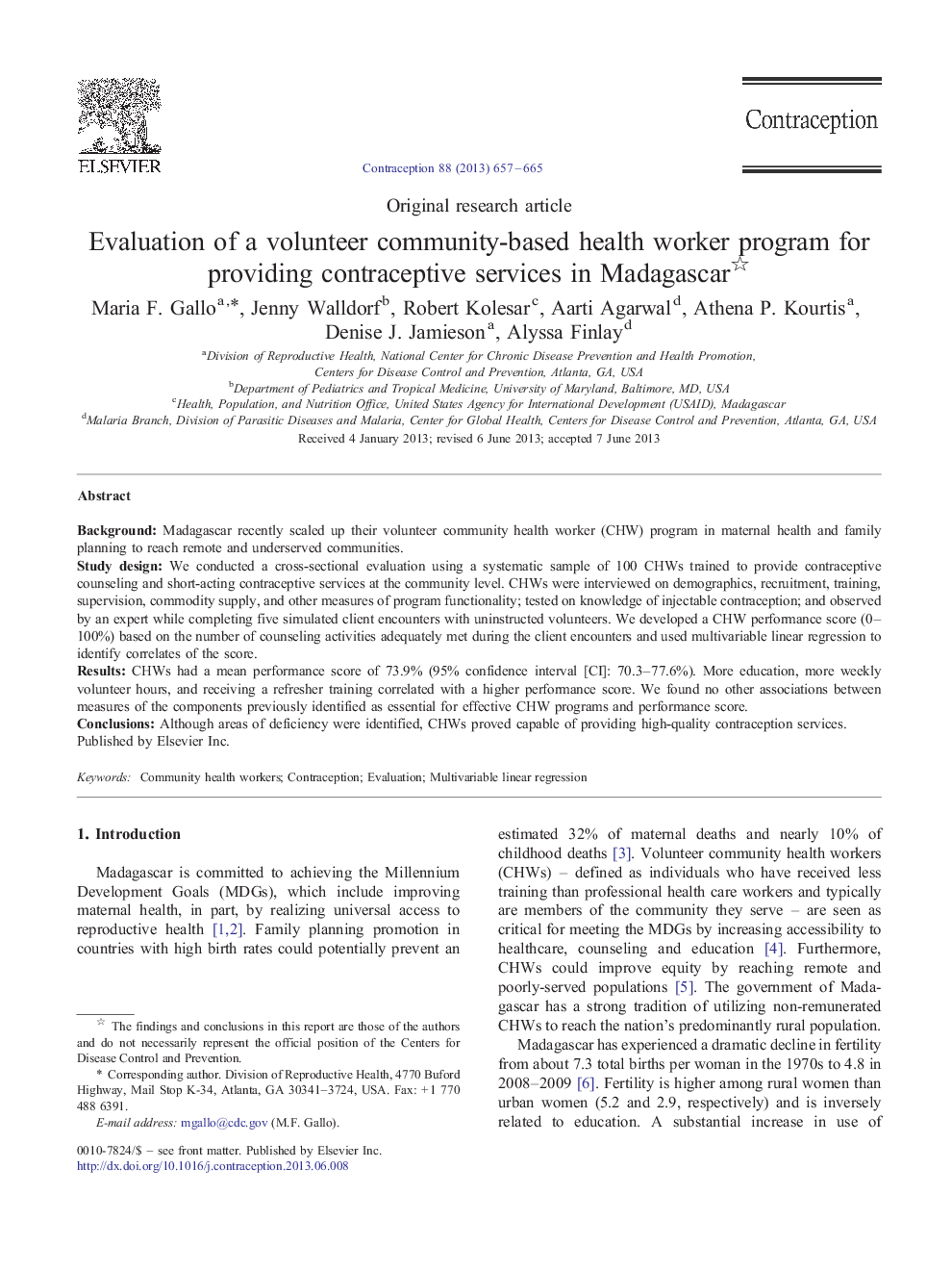| Article ID | Journal | Published Year | Pages | File Type |
|---|---|---|---|---|
| 3913221 | Contraception | 2013 | 9 Pages |
BackgroundMadagascar recently scaled up their volunteer community health worker (CHW) program in maternal health and family planning to reach remote and underserved communities.Study designWe conducted a cross-sectional evaluation using a systematic sample of 100 CHWs trained to provide contraceptive counseling and short-acting contraceptive services at the community level. CHWs were interviewed on demographics, recruitment, training, supervision, commodity supply, and other measures of program functionality; tested on knowledge of injectable contraception; and observed by an expert while completing five simulated client encounters with uninstructed volunteers. We developed a CHW performance score (0–100%) based on the number of counseling activities adequately met during the client encounters and used multivariable linear regression to identify correlates of the score.ResultsCHWs had a mean performance score of 73.9% (95% confidence interval [CI]: 70.3–77.6%). More education, more weekly volunteer hours, and receiving a refresher training correlated with a higher performance score. We found no other associations between measures of the components previously identified as essential for effective CHW programs and performance score.ConclusionsAlthough areas of deficiency were identified, CHWs proved capable of providing high-quality contraception services.
